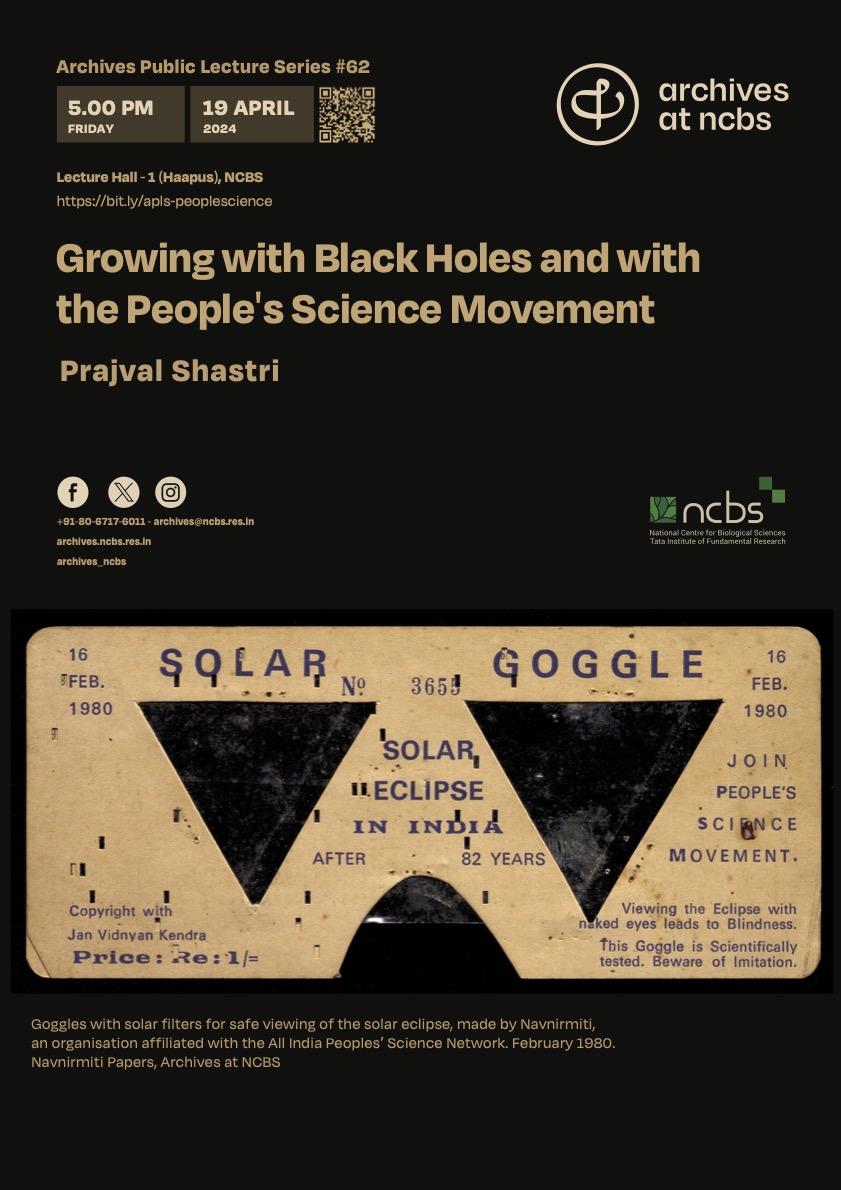Archives at NCBS : Events - Growing with Black Holes and with the People’s Science Movement
Archives at NCBS | Public Lecture Series
https://www.ncbs.res.in/events/apls
62nd edition
Monthly talks framed around explorations in and around archives. Discussions by artists, archivists, academics, lawyers, teachers, journalists and others.
Growing with Black Holes and with the People’s Science Movement
Prajval Shastri
Friday, Apr 19, 2024. 5:00pm.
Lecture Hall – 1 (Haapus), NCBS
Details: https://bit.ly/apls-peoplescience

Abstract:
Our Milky Way, and the more distant galaxies out to the far reaches of the universe, harbour giant black holes. They reveal themselves if and when they grow, via the most powerful glows that we know. I will give a personal retrospective on my experience with the practice of science in this research area. I will attempt to compare and contrast the ethos of that experience with that from my concomitant participation in the people’s science movement in India. What has my involvement with the movement personally meant for my science practice? What does it mean to champion scientific thinking? Are people’s science movements complementary to the practice of science? Does the ethos of the two align? These are some of the questions that I will attempt to delve into.
Bio:
Prajval Shastri is an astrophysicist of over four decades. She was a faculty member at the Indian Institute of Astrophysics, Bengaluru for 23 years. She has also been a Fulbright fellow at Stanford University, Senior Associate at TIFR-ICTS and Senior Fellow at the International Centre for Radio Astronomy Research (ICRAR), Australia. She is currently Emeritus Scientist at the Raman Research Institute and Adjunct Professor, ICRAR. She is extremely passionate about science outreach. She believes that the cultivation of scientific thinking is for everyone, uses astrophysics as a vehicle to engage lay audiences of all ages with these questions in multiple languages, and works for the people’s science movement towards this goal. She is also deeply concerned about the inequities in the sciences and attempts to bring an intersectional lens to the endeavours to mitigate them.
The Archives at NCBS has an archival collection from a people’s science organisation, the Navnirmiti Papers. View it here: https://bit.ly/archives-navnirmiti


